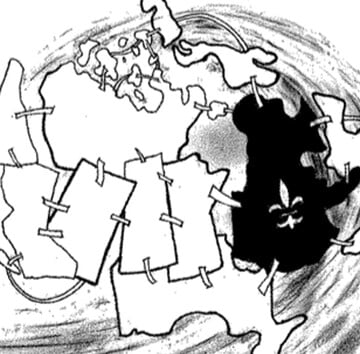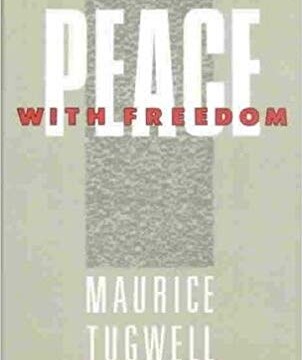In their British North America (BNA) Act of 1867, the Fathers of Canada’s confederation produced a work of genius. The two senior levels of government were awarded separate and exclusive powers: Ottawa over national matters; provincial governments over property and civil rights and “generally all matters of a merely local or private nature in the...
Author: Kenneth McDonald (Kenneth McDonald)
General Lewis MacKenzie on the Balkans War
Edward Gibbon wrote, “As long as the same passions and interests subsist among mankind, the questions of war and peace, of justice and policy, which were debated in the councils of antiquity, will frequently present themselves as the subject of modern deliberation.” To a career soldier there is something incongruous in the business of “peacekeeping.”...
Standard Fare
Canada’s role in World War II was relived last year on Canadian national television via a mini-series entitled The Valour and the Horror. The second part of the series, Death by Moonlight: Bomber Command, was met by protests so widespread as to cause the whole series to be placed on the agenda of the Canadian...
Backed Into a Box
Canada’s social engineers got themselves into a box by creating what the Bilingualism and Biculturalism Commission called in 1967 “an equal partnership between the two founding races.” Descendants of all other immigrants, who until then had thought of themselves as Canadians, were suddenly excluded from the new definition. To placate them, the engineers declared the...
A Guide to Political Reform
In May 1987 a meeting of about two hundred delegates from the four Western provinces met in Vancouver to discuss a common concern: alienation of Western Canada that resulted from the concentration of political power in an Ottawa largely controlled by Ontario and Quebec. Most of the delegates were small “c” conservatives who believed in...
Saving the Children
On September 30, 1990, Prime Minister Brian Mulroney addressed the World Summit for Children, of which he was co-chairman, at the United Nations in New York. The event climaxed 18 months of work by over 30 Canadian non-governmental organizations, much of it at the expense of taxpayers whose opinion had not been sought, but who...
The Politics of Acid Rain in Canada
Until this year, acid rain was rarely front-page material in Canada, though a Parliamentary Special Committee on Acid Rain did solid work both on identifying the sources and proposing remedies. As a newsmaker, however, it was overshadowed by such Canadian staples as the whopping national debt, constitutional wrangles between Ottawa and the provinces, and Quebec’s...
Ici On Parle Anglais
When Canada’s federal government committed the country to two official languages, it set the scene for the social revolution that has since been foisted upon the Canadian majority. That was in 1969, when Pierre Trudeau’s Official Languages Act declared English and French to be the official languages of Canada, possessing and enjoying “equality of status...
Tell Them What They Want to Hear
Unremarked by commentators on Canada’s federal election last November was the performance of candidates for the Communist Party of Canada. To qualify for national status, a party must field candidates in 50 ridings, which the CPC manages to do despite a singular lack of voter support. Out of some 13 million votes cast, the CPC...
Letter from Canada: Legislating Oppression
The appointment of a Parliamentary Task Force on Participation of Visible Minorities in Canadian Society was the latest in a series of attempts to persuade Canadians that their country must be come a miniature United Nations in order to substantiate a political theory. The theorist is Pierre Elliott Trudeau; his theory is that “nations belong...




